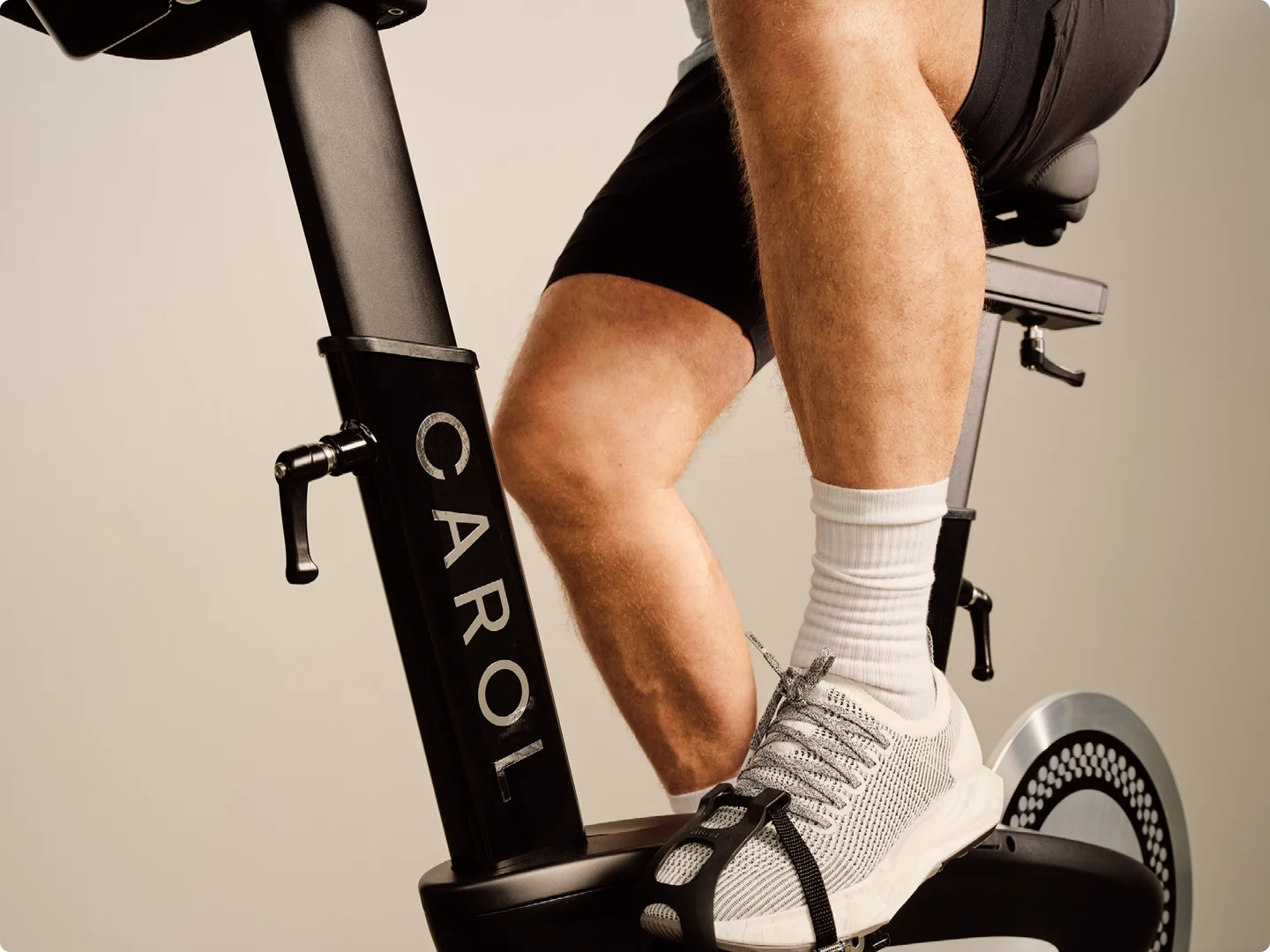Many of us have experienced the positive impact on our overall wellbeing of incorporating physical activity into our daily routine. However, the specific mechanisms behind such an effect on the immune system are not yet well understood. Is there a scientifically proven link between regular exercise and a healthy immune system? Which types and durations of exercise are most effective in boosting immunity? In this article, we will examine the latest research findings to provide a better understanding of this connection.
How does the immune system work?
The immune system consists of a combination of organs, immune cells, tissues, and proteins that defend your body against infection, while protecting the body’s own cells. Your white blood cells, lymphatic system, thymus, spleen, and bone marrow are just a few parts of the complex immune system. When they identify a harmful toxin or virus entering the body, these body parts activate an immune response that releases antibodies to eliminate it. Another typical immune response is a fever that helps kill microbes with a high body temperature.
There are two crucial parts of the immune system: the innate immune system and the acquired immune system. The innate immune system is active right after birth, and you inherit it from your parents (primarily from your mother).
Whereas innate immunity is present from birth, adaptive immunity develops throughout your life. The immune system stores a memory of every pathogen it has ever fought off (including those from vaccinations) in specialized white blood cells known as B-lymphocytes and T-lymphocytes, also referred to as “memory immune cells.” This adaptive immune system can identify and target viruses and germs with greater precision and efficiency than innate immunity.
How does exercise improve immune response?
Increased immune-cell flow
In 2019, the Journal of Sport and Health Science published a scientific review summarizing key research findings in exercise immunology. This review sheds light on how exercise improves immune response and lowers the risk of illness. One of the primary benefits of exercise is increased immune-cell circulation in the body.
Individuals typically have a small number of immune cells, which are concentrated mainly in lymphoid tissues and the spleen, where the body eliminates harmful viruses and bacteria. Exercise boosts blood and lymph flow to nourish the muscles, resulting in increased immune-cell circulation. Consequently, highly specialized immune cells, such as natural killer (NK) cells, cytotoxic T-cells, and immature B-cells, roam throughout the body to eliminate pathogens.
Reduced inflammation
The aforementioned research also highlights the anti-inflammatory and antioxidant effects of regular exercise. Chronic inflammation can be detrimental because it can cause the immune cells to attack the body’s own tissues. Multiple epidemiological studies have shown that adults with higher levels of physical activity consistently exhibit reduced levels of inflammatory biomarkers. Like increased immune-cell circulation, physical activity enhances the circulation of immunoglobulins, anti-inflammatory cytokines, and neutrophils. This maximizes the effectiveness of the body’s inflammatory immune response, reducing the risk of chronic inflammation.
Multiplication effect
Regular physical activity leads to a compounding of positive effects related to increased immune-cell flow and reduced inflammation. Each exercise session further enhances the activity of anti-pathogen cells and circulation of anti-inflammatory chemicals. Daily physical activity significantly improves immune response and metabolic health, reducing the incidence of infectious diseases.
For example, a study found that individuals who engaged in aerobic activity 5 or more days a week had a lower incidence of upper respiratory tract infections by nearly 40% over 12 weeks.
Similarly, research published in the British Journal of Sports Medicine during the pandemic supports these findings. The study reviewed 16 research articles that investigated the impact of physical activity on COVID-19. Regular exercise was associated with a lower risk of infection and reduced severity of COVID-19. Individuals who exercised regularly had a 36% lower risk of hospitalization and a 43% lower risk of death from COVID-19 compared to those who had a sedentary lifestyle.

Regular physical activity leads to a compounding of positive effects related to increased immune-cell flow and reduced inflammation.
Raised body temperature
Fever is one of the common immune responses when fighting off infectious diseases, because high temperature prevents bacteria from growing and helps fight the infection. Your body temperature also rises during and after exercise, providing a similar effect. Although this rise is not as significant as what occurs during a flu or a cold, it is still beneficial to your immune system.
Reduced risk factors
Certain conditions, such as obesity, diabetes and heart disease, increase risk of severe illness. Training improves overall health by reducing these risks. Moderate aerobic activities like walking, jogging, or cycling increase sensitivity to insulin, contribute to a good cholesterol level, keep body weight under control, and strengthen cardiovascular muscle. Improved overall health protects you from infection.
Decreased stress and insomnia
Studies have shown that the negative impact of stress and depression on well-being can be dramatic, damaging the immune response and leading to a state of low-grade chronic inflammation. This can result in an increased occurrence of infections, metabolic diseases, and even cancer. However, regular exercise can slow down the release of stress hormones such as cortisol while also positively affecting serotonin and dopamine levels, which can improve mood and overall well-being.
Insomnia, which is often associated with high levels of emotional stress, can also have a negative effect on a healthy immune system. Sleep plays an important role in supporting the immune system, and insufficient sleep can result in immune impairments that may lead to chronic diseases such as infections, cardiovascular disease, metabolic and autoimmune diseases, neurological and developmental disorders, as well as cancer, as demonstrated by various studies. Furthermore, research has shown that people who work shifts or have long work hours experience a reduction in antibodies and the production of inflammatory cytokines.
Regular physical activity contributes to better overall sleep quantity and quality, allowing the immune system enough time to recover. By reducing stress and promoting better sleep, exercise can have a significant positive impact on immune function and overall health.
Anti-aging effect
As we age, our immune system undergoes natural degradation, leaving us more susceptible to illness. However, emerging data shows that habitual exercise can slow down this process and improve immune system regulation. In fact, regular exercise has been found to delay the onset of up to 40 chronic diseases.
This effect is attributed to the lengthening of telomeres, an important part of human DNA. Telomeres naturally decrease in length as we age, and this prevents important cells from reproducing, including immune T-cells and natural killer cells. Researchers have discovered that longer telomere lengths are associated with higher levels of physical activity, compared to individuals who are sedentary. This difference is especially significant for older individuals, as longer telomeres can reduce the risk of age-related diseases.
Interestingly, endurance training has been found to be more effective than resistance training for anti-aging results.
In addition to lengthening telomeres, physical activity has several other ways of boosting the immune system. Exercise increases the diversity of bacteria in the gut, promotes detoxification through sweating, and helps to drain the lymphatic system.

Emerging data shows that habitual exercise can slow down the process of natural immune degradation and improve immune system regulation.
What types of exercise boost your immune system the best?
Workout frequency, duration, and intensity all play a role in boosting immunity. It is recommended to engage in longer moderate-intensity exercise for about an hour, reaching 70% of your max heart rate. Working out several times a week at a moderate pace is more efficient than fewer, more intense sessions. Moderate cardio activities such as walking, jogging, cycling, or swimming are preferred over muscle-damaging exercises.
In fact, prolonged high-intensity training can suppress the immune system and actually increase vulnerability to infection and illness. Lack of rest, low-energy-intake diet, and ultra-endurance running can lead to immunosuppression, making the body more susceptible to infections. In a 2021 review, researchers studied potential health problems experienced by ultra-endurance runners; it was found that they experienced a transient immunosuppression for several hours that increased the risk of viral and bacterial infections.
Immunity-boosting training plan from CAROL Bike
For optimal immune system improvement and longevity, consider CAROL Bike’s Zone 2 training program, which recommends adding 2–3 lower-intensity workouts that last 60–90 minutes to your weekly regime.
Zone 2 training involves exercising at a level where you can still hold a conversation. This type of training has gained popularity in recent years and offers different options such as automatically staying within a specific training zone, selecting a target power level, or directly controlling resistance. By focusing on endurance and avoiding premature exhaustion, you can improve your immune system and overall health.
A regular exercise routine is a powerful tool to boost your immune system, protect your body from infectious diseases, and live a longer, healthier life. Aerobic workouts like running and cycling are excellent immune boosters; however, it’s important to maintain a balanced training regimen, allow for ample recovery time, and avoid overtraining.


